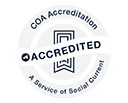Preventing Shaken Baby Syndrome
Shaken Baby Syndrome, also called Abusive Head Trauma, occurs when an infant or young child is shaken forcefully. Babies’ neck muscles are weak and their brains and connective tissues are fragile and underdeveloped. When a baby is shaken, the brain bounces within the skull, causing bruising, bleeding and swelling inside the baby’s brain.
Shaking a baby or young child, even for a short time, can cause irreversible damage. In the worst cases, children die from their injuries. Children who survive may have:
- Partial or total blindness.
- Mental retardation.
- Developmental delays.
- Seizures.
- Cerebral palsy.
- Paralysis.
- Speech and learning difficulties.
- Problems with memory and attention.
What should I do when my baby cries?
All babies cry! Crying is your baby’s way of communicating. When your baby cries, he may be trying to tell you he:
- Is hungry.
- Needs to be burped.
- Needs his diaper changed.
- Is too hot or too cold.
- Is in pain (check for fever or teething).
If your baby’s basic needs have been met, the following things may help to calm her:
- Offer her a pacifier.
- Hold her against your chest and walk or rock gently.
- Place her in an infant swing.
- Take her for a ride in her stroller.
- Play soothing music.
- Sing or talk to her.
- Take her to a quiet room.
What should I do if I become upset by my baby’s crying?
Sometimes babies just cry. It’s okay. Crying will not hurt your baby. It’s better to let your baby cry than shake him. The number one reason given by perpetrators of Shaken Baby Syndrome is that they were angry or frustrated because the baby wouldn’t stop crying.
It’s normal to feel stress when a baby is crying. If you become upset by your baby’s crying, take a break, even if it means leaving the baby to cry for a few minutes:
- Gently place your baby on his back in a crib and leave the room.
- Relax, breathe deeply and count to 10, 20 or 30.
- Watch TV, listen to music or take a shower.
- Don’t feel guilty about asking for help. Call a friend or relative for support or to take over for a while.
- As you calm down, check on your baby every five to 10 minutes.
For more information, read the DCFS publication Never Shake a Baby: Understanding and Preventing Shaken Baby Syndrome in English, en español or en français.


